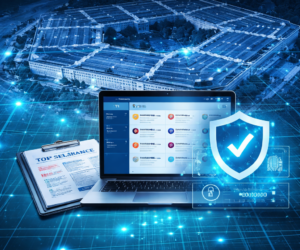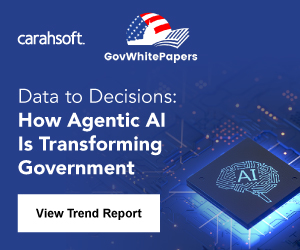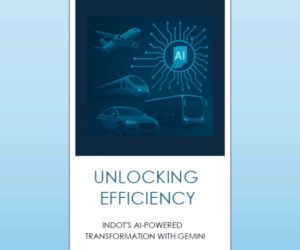
Sorry, your browser is not compatible with this application. Please use the latest version of Google Chrome, Mozilla Firefox, Microsoft Edge or Safari.
Technology content

Quantum is Coming: 5 Realities Shaping the Race to...
Organizations are approaching a pivotal shift as quantum computing moves toward practical advantage. Based on global executive research, the report identifies five realities shaping adoption: readiness matters as much as…
Learn More


Five Pillars of Effective Government
Government effectiveness depends on five core pillars: strong multi-sector partnerships, financial and operational efficiency, technology-enabled service delivery, data-driven decision-making, and a skilled, adaptable workforce. Progress in these areas helps agencies…
Learn More


The Convergence of AI-Cybersecurity in Education,...
The rapid emergence of AI, together with advances in machine learning and quantum computing, is reshaping cybersecurity by increasing the scale and sophistication of cyber threats and altering how digital…
Learn More


Auto Emergency Evacuation System
The Automotive Emergency Evacuation System is a vehicle-integrated safety solution designed to automatically enable occupant escape when conventional exits are compromised. By detecting severe events such as crashes, fires, rollovers,…
Learn More


Agile Recruiting in National Security
National security hiring is uniquely unforgiving. Labor categories are rigid, award timelines wobble with bid protests and funding cycles, and a single stalled polygraph can jeopardize delivery. Traditional, linear requisition…
Learn More


Protect Your Smart Device
Smart devices have become essential to daily life—but their value and the personal data they hold also make them prime targets for theft and misuse. This FCC guide explains simple…
Learn More

Wireless Connections and Bluetooth Security Tips
Staying connected on the go is convenient, but this guide shows how easily public Wi-Fi and Bluetooth connections can expose your devices to cyberthreats. The FCC explains common risks—from imposter…
Learn More


Unlocking the Potential of Research Infrastructure...
Research infrastructures (RIs) represent major scientific investments, yet many of them still serve only narrow expert communities despite having far broader potential. This report highlights how collaborative RI ecosystems—built across…
Learn More


2025 Public Records Complexity Benchmark Report
Public records management has become more intricate than ever, reflecting the growing intersection of transparency, technology, and public expectation. The 2025 Public Records Complexity Benchmark Report reveals steep increases in…
Learn More


CDI: FIPS 140-3 Validated Out-of-Band Management
Federal agencies use remote access to manage core IT networks—particularly large, distributed architectures. The industry term for this access is Out-of-Band Management. Every network appliance includes an Out-of-Band Management (console)…
Learn More


Enabling Intent-Based Autonomous Networks
This paper explores how intent-based autonomous networks (IBANs) are transforming the way telecommunications and digital infrastructure are managed. By combining AI, automation, real-time analytics, and programmable architecture, these networks can…
Learn More


The Space Economy Workforce and STEM Occupations
The U.S. space economy now reaches nearly every major industry, and over half of its workforce is in STEM roles—more than double the national average. Software developers, engineers, and advanced…
Learn More


Data to Decisions: How Agentic AI Is Transforming...
Agentic AI is a major evolution in artificial intelligence, moving beyond simple input-output models to systems that can interpret instructions, plan tasks, break them into steps, execute workflows, and adapt…
Learn More


Unlocking Government Efficiency with AI
Indiana’s Department of Transportation transformed a massive, manual reporting effort into an AI-powered workflow using Gemini and Vertex AI. Faced with scattered policies, tight deadlines, and security constraints, the team…
Learn More


Managed Attribution for Law Enforcement
As more criminal activity shifts online, law enforcement faces growing challenges from traffickers, hackers, and AI-driven fraudsters operating across the deep and dark web. Conventional tools like VPNs are no…
Learn More


